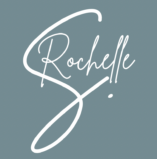To keep track of these lives we live
– Frederich Buechner
is not just a means of
enriching our understanding…
but a truly sacred work…
Our secrets are human secrets,
and our trusting each other enough
to share them with each other
has much to do with the
secret of what it is to be human.
In Frederich Buechner’s book, Telling Secrets, he tells the story of his father’s suicide when he was ten years old. He explores how this event followed him though his life, and how our ways of remembering can be either a hindrance to our healing, or a catalyst for it to happen. It took a crisis in his own family many years later for him to realize that his entire life he had been aching to tell his whole story, yet afraid to, and how carrying it untold had only left its shadow on the shoulders of his own family.
Memory, he writes, makes it possible for us both to bless the past, even those parts of it that we have always felt cursed by, and also to be blessed by it.
He goes on to say this: Maybe the most sacred function of memory is just that: to render the distinction between past, present, and future ultimately meaningless; to enable us at some level of our being to inhabit that same eternity which it is said that God himself inhabits.
Remembering our lives, he writes, is what enriches all of human experience. He calls it “this kind of rich human compost.” I love that word picture – remembrance as compost. What better way to transmute the pain of the past than to turn it into compost that nourishes the garden of tomorrow?
Story as Remembrancer
Carrying our old stories, old wounds, and old secrets is not brave. This choice places it upon the shoulders of those around us, and those who come after us. Robert Bly’s poem, My Father’s Wedding, is a candid exploration of the consequences of this stiff upper lip.
Story-telling is vulnerable. But it is one of the strongest acts of healing we can embrace.
The complex events that launch us into existence, form our childhoods, and mark our adult lives are like the strands of many balloons. We grasp a strand from time to time and look at it in an analytical way. This can be an invaluable healing practice. Carl Jung’s psychoanalytical work in particular, and his explorations of human archetypes and symbolism, are a treasure.
A story does something different. A story, if it is well-done, can hold the complex and varying strands of existence together without dissecting them or explaining them. And out of that gentle, story-telling hand a wordless understanding begins to flow. A different kind of understanding perhaps, but healing nonetheless. It’s a healing energy that rises above the hard work of explanation.
Stories shared bring connection. Connection brings healing.
Think of songs.
During certain seasons of our lives, a song can touch us. We listen to it again and again. Eventually, we move on, and it slips from our memory. Years may pass until we hear it again, but when we hear it playing we are suddenly taken back to that time in our history. That part of our story. And in one second we are back there, feeling every emotion and seeing faces and rooms and landscapes as if they had been painted into the song.
The Pieta can be analyzed for Michelangelo’s technical skill or the source of the granite if you like, but it is its story that captivates us. It’s the wordless story of motherhood. Sacrifice. Grief. The unseen tears of her life. Of Michelangelo’s life.
In Rembrandt’s painting, The Prodigal Son, it’s not the shades of paint or the qualities of the canvas or even the skill of the painter that made it a masterpiece. Perhaps it was a story he was remembering; perhaps a memory that he never shared; perhaps an unconscious memory. Something flowed through his hands into that painting. That something is what speaks to us. That is what spoke to Henri Nouwen, who wrote about how his unexpected encounter with this painting launched him onto a spiritual quest that forever changed him in his book, The Return of the Prodigal Son.
But it’s not only famous pieces of art that tell our stories.
All of life holds story.
Are our stories carried and retold through the things we make? I believe they are.
When I hold a hand-made pottery mug in my hands, I feel stories. When I wrap myself in a blanket that someone I love has knitted, someone who is no longer here, I am suddenly taken back to what it was like being with them. I can hear their voice, see the sun on their hair, and smell the place where I spent time with them. Their spirit and their stories breathe in the strands of yarn.
We have an innate understanding that we were created to share and hear stories, and we recognize these stories in all their forms. Margaret Atwood said, “You’re never going to kill storytelling, because it’s built in the human plan. We come with it.”
So tell your story. If not in words, let your hands tell your story. The world needs it, but more importantly, you need it.
Stories have been used
-Chimamanda Ngozi Adichie
to dispossess and to malign.
But stories can also be used
to empower,
and to humanize.
Stories can break
the dignity of a people.
But stories can also
repair that broken dignity.



